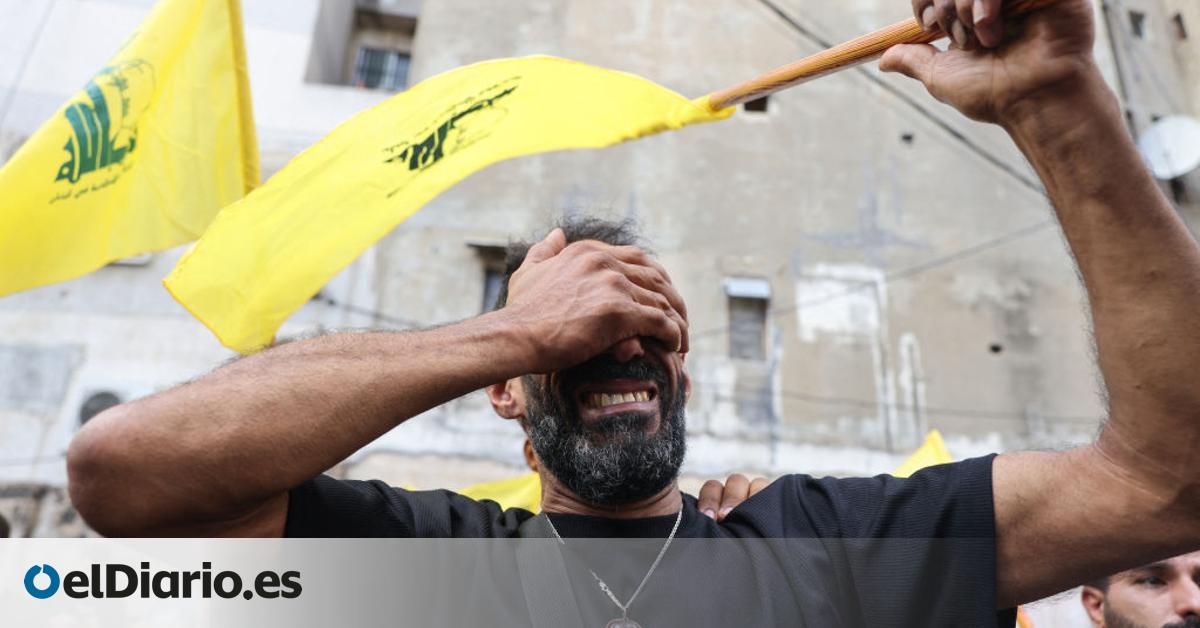
After killing 37 people and leaving nearly 3,000 wounded in a complex intelligence operation against the Hezbollah militia, Israel announced the beginning of a “new phase” in the war on the northern front, bordering Lebanon, whose stated objective is to allow Israelis living near the border to return to their homes.
In addition to deploying more troops to the region, hours later on Thursday evening Israel bombarded southern Lebanon for two hours, hitting Hezbollah targets including 100 rocket launchers and other infrastructure, according to an army statement.
On Friday, the Israeli armed forces continued their escalation with a new attack in Beirut, the capital, in which 31 people were killed, including one of the organization’s military leaders, Ibrahim Aqil, the group’s chief of operations. The attack left at least 68 wounded and 23 missing.
The US had promised a $7 million reward in 2023 for information leading to the arrest of Aqil, whom it believes was one of those responsible for the 1983 Hezbollah attack on the US embassy in Beirut and US military barracks in the capital.
The militia also confirmed on Saturday the deaths of three other special forces commanders: Ahmed Wahbi, who oversaw military operations during the Gaza war, Abu Yaser Atar and Al Hajj Nineveh. According to the Israeli army, at least 16 Hezbollah members were killed along with Aqil.
The Chief of the Defence Staff, Herzi Halevi, met with the commander of the Army’s Northern Command on Friday, but after the bombing in Beirut, the armed forces have assured that “for the moment, there are no changes in the defensive guidelines,” although it is clear that Israel has taken a step forward in its confrontation with Hezbollah.
Israeli media have reported that the commander of the northern command, Ori Gordin, is pushing for a ground operation to create a security zone in southern Lebanon under Israeli control. Following Wednesday’s bomb blasts, Gordon visited his troops near the border and said: “The mission is clear. We are determined to change the security reality as soon as possible.” “The commitment of the commanders and their forces is total and readiness for any mission required has reached a high point,” he said.
“In the new phase of the war there are great opportunities, but also significant risks,” Defense Minister Yoav Gallant said on Thursday. “We have held a number of important discussions and, as a result, military operations on the northern border will continue,” he added.
“The sequence of operations in the new phase will continue until we achieve our objective: the safe return of residents in the north to their homes,” Gallant said on Friday.
The focus has shifted and the northern front has become the main talking point of the war. Two well-known former generals considered centre-left in Israel advocate a ground incursion to drive Hezbollah out of areas from which they can attack Israel with rockets. “When two respected centre-left generals, Yair Golan and Israel Ziv, talk about the need for a ground operation, you get the feeling that it is only a matter of time,” Aaron David Miller said on Twitterformer US negotiator in the conflict.
Hezbollah’s response
Meanwhile, Hezbollah launched around 200 rockets at northern Israel in several waves on Friday, causing no injuries. On Thursday, Hezbollah Secretary General Hassan Nasrallah called the operation that blew up thousands of the Lebanese militia’s communication devices a “declaration of war,” but the group’s strategy has not changed and it continues to launch attacks in response to the Israeli offensive in Gaza, but trying to avoid an open war with Israel.
“Iran and Hezbollah’s decision to stick to the “response equation” [ataque por ataque evitando un enfrentamiento total] “It leaves it to Israel to decide whether and when to start an open war,” analyst Zvi Bar’el writes in the daily Haaretz. “And given Hezbollah’s behavior, Israel will also have to address the questions of the domestic and international legitimacy of such a war as long as Hezbollah does not give reasons to start one.”
White House national security spokesman John Kirby said Friday that he believes war is “not inevitable” yet. “There is time and space for a diplomatic solution. War is not inevitable and we will continue to do everything we can to try to prevent it.” Kirby said Israel had not informed Washington in advance about the Beirut attack.
Daniel Levy, former Israeli negotiator during the mandates of Ehud Barak and Isaac Rabin in various peace processes and current president of the think tank US/Middle East Project, told elDiario.es a few weeks ago that the “American gamble” has not been to try to achieve a ceasefire in Gaza, but to try to contain Iran and Hezbollah and thus avoid a regional conflict.
“Netanyahu’s Israeli side continues to play the role of the more unpredictable and escalatory power, but it probably does not want the kind of massive escalation that would have serious ramifications on its home front and would be more likely to generate a major push for a full ceasefire, thus clashing with Netanyahu’s preference for open war,” Levy said.
Source: www.eldiario.es

